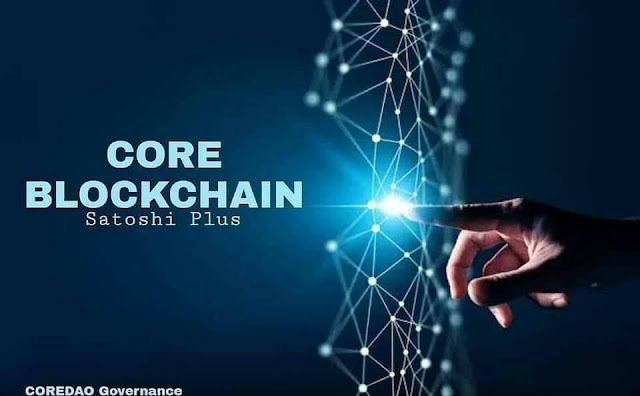What is Core Chain?
Core (Core) is an independent Blockchain to operates at the core of Web 3. Powered by a new consensus mechanism,
"Satoshi Plus", Core is a Turing-complete blockchain leveraging the Bitcoin mining hash rate and the Ethereum Virtual Machine (EVM).
Satoshi Plus consensus mechanism applies a protocol-driven validator election mechanism to combine the optimal features of Proof of Work (PoW) and Delegated Proof of Stake (DPoS) to ensure the maximization of security, scalability, and decentralization.
Core launched on Jan 14, 2023. According to the
chain's data, it has processed 5.7M transactions at the time of writing. That adds to 2M unique addresses created, as well as a significant social following of 1.6M Twitter followers and 210K Discord members.
The Blockchain Trilemma
Security, scalability, and decentralization are the three core elements of any worthwhile blockchain. CoreDAO team in the core whitepaper illustrated how Blockchain innovation has increasingly trended away from decentralization.
The reason for this trend is best explained using the Blockchain Trilemma, which states that all cryptocurrencies must make tradeoffs between optimal security, scalability, and decentralization.
CORE'S Satoshi Plus consensus mechanism balances the elements challenged by the blockchain Trilemma by employing a state-of-the-art Validator election mechanism combining the most critical elements of both the Bitcoin network's Proof of Work (PoW) and Delegated Proof of Stake (DPoS). On top of this, Core is also EVM-compatible.
Proof of Work: As its name implies, Satoshi Plus consensus begins with Bitcoin Network. Rather than developing a completely new and independent Proof of Work algorithm, Satoshi Plus directly leverages Bitcoin's proven and preeminent PoW system. Specifically, Satoshi Plus' PoW component includes Bitcoin miners in the election of CORE'S Validator Set by having Bitcoin miners directly delegate their hash power to their preferred Validators. This hash power is the energy expenditure that ensures two essential Blockchain elements.
- First, it operates as the skin in the game necessary to secure a truthful ledger.
- Second, it preserves decentralization by encouraging participants from the most decentralized consensus network in the blockchain world.
Delegated Proof of Stake: Complementing the decentralized security of Bitcoin's PoW, Satoshi Plus also utilizes a form of Ethereum's scalable and energy-efficient Proof of Stake consensus. Instead of using the secure, yet inefficient consumption of energy, PoS Verifies transactions by selecting validators that have a large amount of the native tokens staked as collateral.
Problematically, however, the large staking requirements restrict small token holders from participating.
In an attempt to level the playing held, Satoshi Plus utilizes Delegated Proof of Stake (DPoS), which grants all
CORE holder voting power in electing the validator set by delegating their CORE holdings to eligible
Validators.
By allowing even small-stake CORE holders to participate in the validator election process, DPoS empowers the Core community and incentives the democratization of staked CORE.
Thus, Satoshi Plus' DPoS provides scalability on top of PoW's significant decentralization and security, while still carefully maintaining the decentralization of Validator Set voters and the security ensured by skin-in-the-game incentives.
The CORE Combination
Individually, PoW and DPoS are powerful consensus mechanisms, but what makes Satoshi Plus special is the combination of the two. To combine the decentralized security of BTC-powered PoW and the scalability of DPoS, Satoshi Plus' Validator Election Mechanism selects Validators with the optimal blend of BTC hash power and staked CORE to comprise the Validator Set and produce blocks both securely and efficiently. With a lean Validator Set securely elected by a decentralized delegating/voting base, Satoshi Plus offers a high transaction rate and increased scalability without compromising security and decentralization.
Combining Proof of Work, Delegated Proof of Stake, and an efficient Validator Election Mechanism optimally blends security, scalability, and decentralization.
Other network participants such as Relaxers and Verifiers provide additional security and scalability, which adhere to carefully constructed stick-and-carrot incentives. All the details behind those components and more are revealed in the
White Paper.



Comments
Post a Comment